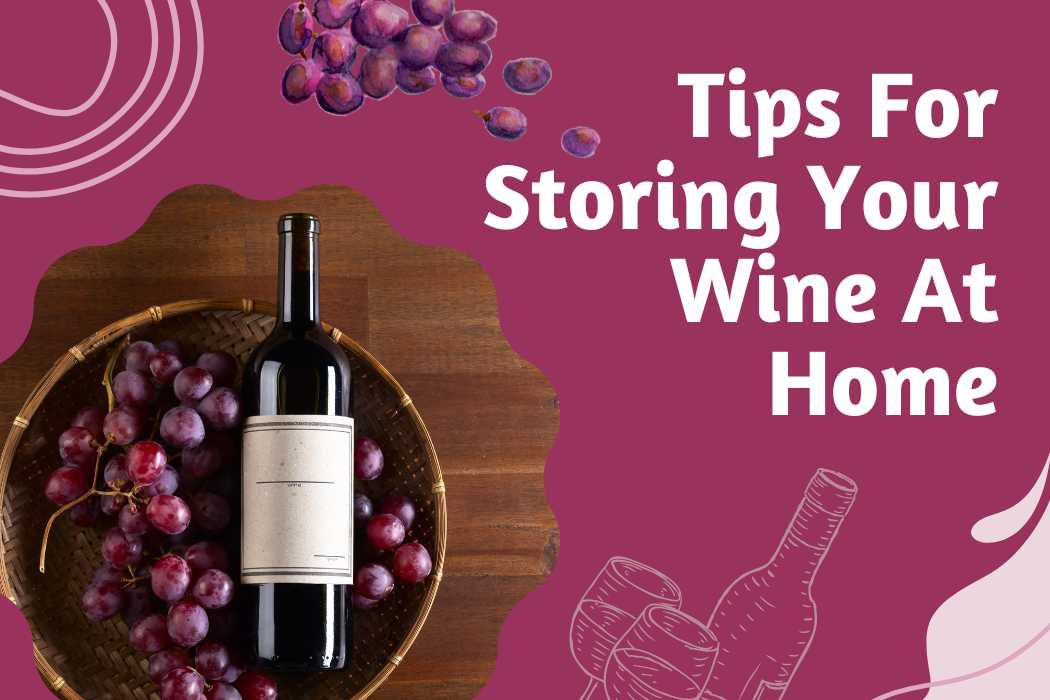Having a wine collection is the ultimate statement of luxury. It is a hobby for people with refined tastes and distinct personalities, as there is great pleasure in enjoying and learning about different types of wine.
However, having an exquisite wine collection is not just about finding and picking out the best bottles out there, it is also about storing these timepieces in a way that preserves their aroma, flavor, and essence. With appropriate storage and preservation, wine can last for years on end. In fact, as it ages, wine eventually becomes more spectacular, not just in terms of taste but in quality as well. The contrary is also true, though. When stored poorly, even the best and most priceless wine can turn into nothing but a bottle of vinegar.
So, if you are looking for ways and tips on how to store wine immaculately, here are a few that can help:
-
Read up before you stock up
Wine storage is an art itself, just like understanding different tastes and flavors is. It may be something you’ve always looked forward to along with curating your personal wine collection. Still, before you can go on a shopping spree picking out bottles, it is important that you read up about the basics of wine and everything else that there may be to know about them.
In order to get started, lovecraftwines.com offers a comprehensive resource where you can find detailed blog posts about wine, various equipment related to it, and a plethora of other information. This guide is helpful not just for effective storage of wine at home, but also picking the right bottles and how to tell if a certain label is fresh and well-aged or not. You can even shop for relevant products.
-
Store bottles at the appropriate temperature
There are different factors that you need to be careful of when storing wine, but by far, the most important is the temperature you store your collection at. There is a reason why people have exclusive storage for wine bottles in their homes. For most wine bottles, the ideal storage temperature is 55oF or 13oC, although it can vary from label to label. If you want specific recommendations for the temperature at which to store a certain bottle, it is best to consult the manufacturer.
When it comes to wine storage at home, mitigating temperature fluctuations is crucial. Frequent temperature changes can loosen the cork and expose the bottle’s contents to air, which can result in oxidation. Also, ensure you don’t store wine below 25oF or -4oC or at more than 68oF, which is 20oC, as this can rapidly accelerate the aging process, destroying the true flavor.
-
Place the bottle horizontally and not vertically
Ensure you preserve your wine in a dedicated rack, especially for bottles with corks. The cork must stay wet for long-term storage because if it stays dry for a long time, it can lead to leakage and early aging. Placing the wine on its side assists the cork in retaining moisture. Storing wine is more about preserving its taste than just looking fancy.
Screw-top bottles of wine don’t necessarily need to be stored on their sides, but horizontal storage is still a useful technique to place your wines for the most space and accessibility. For this very reason, most wine cellars and even smaller wine fridges in homes have racks that allow only horizontal placement. You don’t want to pop open an exquisite bottle for your guests only to find out it’s spoiled.
-
Keep your wine in a place free from direct sunlight and vibrations
Wine is a delicate and refined drink for the people with the most delicate tastes. Thus, storing wine is a process where the devil is in the details. Regardless of whether you wish to store wine for years, months, or days, you need to ensure it doesn’t come in contact with direct sunlight. UV radiations from the sun can destroy the aroma and flavor that makes each bottle special.
Similarly, each bottle has sediments that allow it to age beautifully. You can disturb this composition by placing the wine cooler or storage unit close to any source of vibration. Your home gym equipment, the washing machine and dryer, or even the stereo system can become a factor in spoiling wine as the vibration can interrupt the delicate aging process.
-
Humidity is also an important factor in storage
Much like temperature, humidity can also impact how well the wine ages and how it tastes when you finally decide to open a bottle. Ideally, the humidity levels in the wine storage area should be set between 60% and 68%. Going above or below the limit can affect the duration for which the wine tastes and smells exciting.
Too much humidity in the wine cellar or refrigerator may not impact the liquid inside the bottle, but it can peel off the labels from bottles which reduces their aesthetic appeal while on display. Too little humidity can also spoil the wine because it leaves the cork vulnerable to letting oxygen through. As it gets in, it reacts with the wine turning it tasteful within a few days.
-
Have a dedicated wine fridge over a normal refrigerator
Having read through this article, you know that wine needs to be stored in a place where temperature, humidity, and light can be controlled extensively. A normal fridge, therefore, is not ideal for storing wine as it doesn’t fit the parameters. If you want to store wine at home, your first investment must be a wine fridge or cooler.
These pieces of equipment are tailor-made to keep wine moist, cold, and dark at the recommended levels. A normal fridge keeps items cold and dry, which is not a great setting for wine. On the other hand, wine fridges can more carefully regulate the temperature and moisture levels, ultimately ensuring the taste and aroma of your wine collection remain as fine and pure as ever.
Conclusion
Wine storage at home requires certain efforts and investments. It may not be for everyone, but if you have a passion for wine collecting and tasting, it is a rewarding experience. Because of the refined nature of the drink, and its need to age well and remain far from certain natural elements, wine storage must be undertaken with utmost care. At the end of the day, it’s all about enjoying this delicacy on your own or with your guests, where in either case, you wouldn’t want to serve a spoilt drink.
you may also like,
Wine-related mistakes you must avoid





